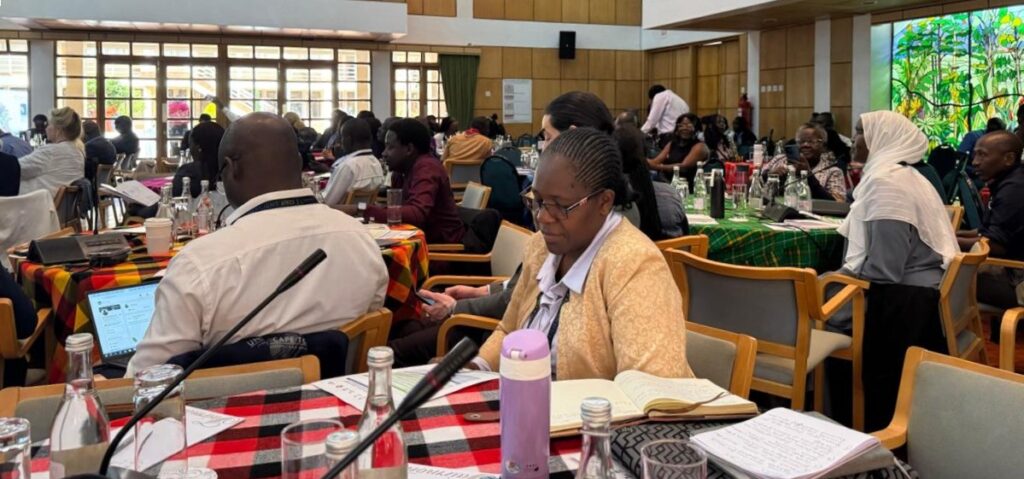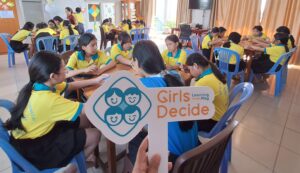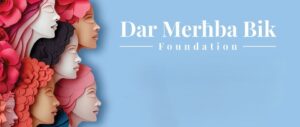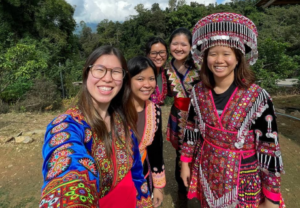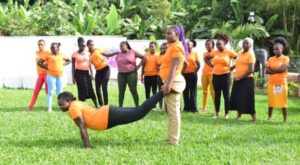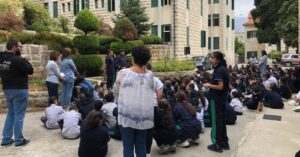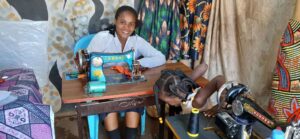 Por la Hermana Teresia Kathure Murungi, RGS: Directora de la Oficina de Desarrollo de la Misión de la Provincia de África Centro-Oriental en Nairobi y miembro de la Fraternidad de Mujeres Líderes Religiosas (2024-2025).
Por la Hermana Teresia Kathure Murungi, RGS: Directora de la Oficina de Desarrollo de la Misión de la Provincia de África Centro-Oriental en Nairobi y miembro de la Fraternidad de Mujeres Líderes Religiosas (2024-2025).
El desarrollo Humano Integral, tema central de la Doctrina Social Católica, nos llama a concebir el progreso como el pleno desarrollo de cada persona: social, económica, política, espiritual y culturalmente. Como enfatizó el Papa Pablo VI en Populorum Progressio (El Desarrollo de los Pueblos), el desarrollo auténtico debe promover a la persona en su totalidad, yendo mucho más allá del crecimiento económico. Esta visión resuena profundamente con la misión de Nuestra Señora de la Caridad del Buen Pastor, cuyo carisma y principios enfatizan la dignidad, la reconciliación, la misericordia, la justicia y la compasión.
Para las Hermanas del Buen Pastor, el desarrollo no es un marco abstracto, sino una realidad vivida que se expresa a través del acompañamiento diario a mujeres y niñas en contextos vulnerables en todo el mundo. Si bien los Objetivos de Desarrollo Sostenible (ODS) de las Naciones Unidas ofrecen un valioso marco global, los enfoques inspirados en la fe insisten en la integración y la plenitud. Nos recuerdan que la pobreza, la desigualdad de género, la violencia y la exclusión no pueden abordarse de forma aislada, sino de manera integral. Los ODS nos brindan un lenguaje común; el desarrollo humano integral, basado en la fe, nos da alma.
Más allá de los resultados materiales: Lecciones de la experiencia
En el condado de Kajiado, Kenia, conocí a mujeres jóvenes que habían abandonado la escuela debido a matrimonios precoces, prácticas culturales retrógradas o dificultades económicas. Sus necesidades materiales eran evidentes: formación profesional, generación de ingresos y oportunidades educativas. Sin embargo, lo que más me impactó fue su pérdida de autoestima. Muchas arrastraban las heridas invisibles del rechazo y el silencio.
En respuesta, los programas del Buen Pastor combinaron la formación profesional con la consejería, el diálogo grupal y el acompañamiento espiritual. Esta integración reflejó el principio del Buen Pastor de restaurar la dignidad y fomentar la plenitud, como se afirma en los Documentos de Posición de la Congregación (2018). Con el tiempo, la transformación se hizo evidente: una joven, antes reservada y retraída, se presentó ante sus compañeros y declaró, ''Ahora creo que puedo ser una líder.'' Su empoderamiento no fue solo económico, sino también personal, social y espiritual.
Estas historias nos recuerdan que el verdadero empoderamiento comienza con la afirmación de la dignidad humana. El progreso material importa, pero sin renovación interior, queda incompleto. El desarrollo humano integral nos exige ver a las mujeres no como problemas por resolver, sino como personas con valor intrínseco y potencial de liderazgo.
El Rol Distintivo de los Agentes de la Fe
Las Instituciones Religiosas a menudo ocupan un espacio único de confianza en las comunidades. Las Hermanas Católicas, gracias a su larga presencia, pueden llegar a quienes los sistemas formales ignoran o marginan. Esta confianza facilita la participación en temas delicados como el matrimonio infantil, la violencia de género y la trata de personas, áreas donde los enfoques puramente técnicos suelen fallar.
En Uganda, acompañamos a mujeres que han sobrevivido a la trata de personas. Si bien el rescate, el refugio y la formación profesional fueron vitales, no bastan para sanar. Lo que sostiene a muchas sobrevivientes es la presencia compasiva de las Hermanas que las escuchan, oran y las acompañan con paciencia. Una mujer compartió, ''Me siento sanada no por las lecciones del grupo ni por el apoyo psicosocial, sino porque, por primera vez, me sentí reconocida como persona.''
Esto ilustra un principio clave del Buen Pastor: el ministerio de la presencia. La transformación a menudo ocurre menos mediante intervenciones estructuradas que mediante el don del acompañamiento, arraigado en la misericordia y la compasión. Los actores de la fe aportan capital relacional y credibilidad moral que se extienden más allá de los ciclos de los proyectos. Estas cualidades no son fáciles de cuantificar, pero son fundamentales para un cambio sostenible.
Vinculando el Desarrollo Humano Integral con los ODS
Los ODS movilizan recursos globales y la rendición de cuentas; sin embargo, en la práctica, a menudo se persiguen de forma aislada. Los enfoques inspirados en la fe resisten esta fragmentación, reflejando la interconexión de la vida humana. El Papa Francisco, en Laudato Si’ (Alabado seas), nos recuerda que las dimensiones social, económica y ecológica de la dignidad humana son inseparables y deben abordarse conjuntamente.
En Kitale, Kenia, las Hermanas del Buen Pastor trabajan con mujeres agricultoras rurales. A primera vista, la iniciativa mejora la producción agrícola y reduce el hambre. Sin embargo, también mejora la nutrición familiar, fortalece la confianza de las mujeres, fomenta grupos solidarios y facilita la defensa de los derechos sobre la tierra. En términos de los ODS, esto se relaciona con el Hambre Cero (ODS 2), la Igualdad de Género (ODS 5) y la Paz y la Justicia (ODS 16). En términos de fe, refleja justicia, dignidad y empoderamiento.
Al vincular lo global con lo local y lo técnico con lo espiritual, las iniciativas inspiradas en la fe previenen la fragmentación. Garantizan que ningún aspecto del desarrollo humano —económico, social, cultural o espiritual— se descuide.
Liderazgo espiritual como empoderamiento
El empoderamiento tiene dimensiones tanto externas como internas. El empoderamiento externo brinda acceso a recursos, educación y oportunidades. El empoderamiento interno promueve la resiliencia, la autoestima y un sentido de vocación.
En muchas aldeas rurales, las Hermanas reúnen a mujeres para orar, compartir historias y reflexionar. A primera vista, estos encuentros parecen modestos. Sin embargo, son transformadores. Mujeres que antes se consideraban impotentes comienzan a asumir roles de liderazgo en sus familias y comunidades.
El principio de la Congregación de Nuestra Señora de la Caridad del Buen Pastor de queUna persona vale más que el mundo entero'' anima esta labor. El liderazgo espiritual no se trata de dominación, sino de acompañamiento, despertar y solidaridad. Cada encuentro, por ordinario que sea, es una oportunidad para afirmar la valía e inspirar iniciativa. Estos momentos revelan el empoderamiento no como el resultado de un proyecto, sino como una experiencia vivida de dignidad y esperanza.
Reflexiones y lecciones
De estas experiencias surgen varias perspectivas que pueden orientar modelos de progreso más inclusivos:
- El empoderamiento holístico es esencial. El apoyo económico sin sanación psicosocial ni crecimiento espiritual sigue siendo frágil.
- La Dignidad Humana es la base. Toda iniciativa debe partir del reconocimiento del valor inherente de cada persona.
- La presencia es transformadora. El acompañamiento, la escucha y la solidaridad pueden ser tan impactantes como las intervenciones técnicas.
- La integración evita la fragmentación. Los enfoques inspirados en la fe ayudan a vincular los ODS con las realidades vividas, garantizando que ninguna dimensión de la vida se descuide.
- Las mujeres como agentes de cambio. Empoderar a las mujeres y las niñas genera un efecto dominó que transforma a las familias, las comunidades y las sociedades.
Conclusión
El Desarrollo Humano integral nos reta a re imaginar el progreso no solo como el cumplimiento de objetivos, sino como el fomento del desarrollo integral de cada persona. La misión de las Hermanas del Buen Pastor demuestra que el empoderamiento se trata tanto de ser como de hacer, estar presente, ser compasivo y tener esperanza.
Empoderar a las mujeres y niñas no es solo un objetivo de desarrollo sino también un imperativo espiritual y moral. Cuando se honra su dignidad, se amplifican sus voces y se fomenta su liderazgo, la transformación se irradia, las familias se estabilizan, las comunidades se fortalecen y las sociedades se acercan a la justicia y la paz.
Al conectar marcos globales como los ODS con las realidades locales de fe y comunidad, los actores religiosos aportan algo indispensable: una visión de progreso inclusiva, integral y transformadora. Esta visión garantiza que el desarrollo no se limita a las ganancias materiales, sino al desarrollo integral de la persona: social, económica, política, espiritual y culturalmente.
Publicado por primera vez en el Foro de Berkeley el 26 de septiembre de 2025, como parte de los Enfoques de Desarrollo Inspirados en la Fe que Empoderan a Mujeres y Niñas. Acceda, access aquí.
